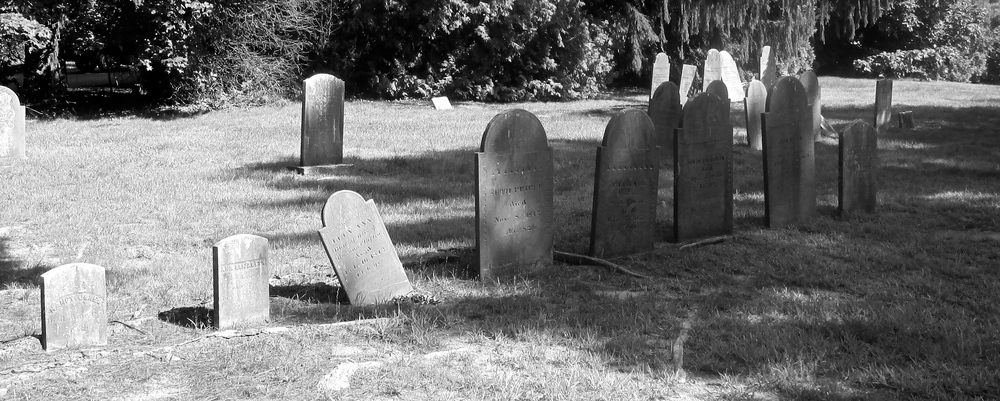by Nick Porcella

The subject-matter was challenging, even uncomfortable: racism and derogatory language. My task as a mentor was to engage in a dialogue (“a constructive dialogue”) about the topic with my group of high school sophomores. We were to break up into small groups, and right away I looked at Angel, hooded and head down in the back of the room.
“I’ll take him,” I said.
In dodgeball selection Angel always got picked last. Why not change things up and go with the underdog? Even if that underdog had a lot of bite. Angel would be a part of my discussion on racism. He was going to be in my group and I would succeed at instilling in him the dangers, for one thing, of throwing around the word “faggot” so carelessly.
I had made a claim on Angel at a workshop earlier that day. I felt a deep pull towards him, all the time. His jagged edges somehow brought me closer to him than to the other students did. It’s not that I enjoy playing with broken glass, but something about Angel made me both like him and despise him. I don’t know if I felt threatened by him or if I just felt some inherent desire to see him succeed against all the odds working against him (not the least of which was his personality). Working with Angel, you always wanted more and less–more effort, more care, less sass, less blaming.
Today I wanted more of something. I wanted respect. All I had to do to get Angel to respect me today was to talk to him on his level, man to man. Only, Angel’s just a kid, fourteen years old. But he says he has family in a gang, and he acts like more of a man than me, his masculine aggression not afraid to show through. Not sure how that should make me feel; not sure how he intends to use that information about the gang business one day; not sure if I’m translucent or transparent to him. He would hate me calling him a kid. He’s bright and he’s got all the tools to be a great leader. Angel does nothing to be the leader. He never has to, no one pressures him.
Am I jealous?
But back to dodgeball. “He’s mine. In fact, all you guys can work with me,” I said, addressing a few boys in the back, all sitting with Angel. These boys were always talking, texting, and mouthing off, but for the most part they showed up every week. They never behave well, but eventually they get work done. Our supervisor keeps telling us mentors that our program really is for students like these. I can’t disagree, even though they were pretty stressful to work with. But by now I had committed myself to working with “the boys in the back of the room.”
Ambition. Macbeth is dead, after all.
Angel was quick to express himself: “Mister, why we got to do this?”
I ignored this. I gathered together the gang I had so fervently fought for. Right away, they wanted nothing to do with me. Sure, they sat in a circle like I requested, but they did not want to hear a word I had to say. They talked over me, calling each other out: “You Mexican!” “Stop staring at me, a-hole!” “He’s pushing me!”—ironic of course because these were the very things I was trying to address. The noise was intense and all-encompassing, putting me in a stupor: Why did I sign up for this? But then everyone except Angel was talking. My chance. He’s mine.
“Angel, why don’t you talk to me? You’ve shut down.”
He said the activity was dumb. He hated it. Then he added that he was tired of me not listening to him. That one hurt. But was it true? He gave me a powerful stare—dark, pooling eyes and an ascending lower lip—as if he wanted to push my head through the wall. The gaze seemed familiar.
I was looking at James Dayton. I was paralyzed for a roughly two and a half second eternity. A reflex-driven eyelid snapped me back to see Angel. James Dayton, though, mattered to me now, even if I hadn’t thought of him for years. That was on purpose. James Dayton was the high school bully when I grew up. He made me fearful to turn corners in high school, thinking he’d call me a faggot or fake me out with a spectral punch. He owned me; I was his.
“You’re a faggot.” This time it came from Angel, but directed to a friend in the group who could only laugh. I glared at Angel. I wanted an explanation.
“What? He’s my friend,” Angel snapped. I did not know what to say. Calling him out would do nothing. He didn’t have to be here, but he came anyway. What did that count for? I unexpectedly realized that I was engaging with a reincarnation of what I hated and feared most just a few years earlier.
We could never have been friends in high school, I thought. But how can I tell you that? How in the world can I expect you to understand that?
Angel. Angel Dayton? Now I’m teaching you? Now I’m engaging with, talking to, and otherwise building a professional relationship with something I used to despise when it held another name and walked a different walk? I am working in a group with a student that had I been five years younger would have bullied me in high school? Just five years …
I think what was so particularly potent about James Dayton—James Dayton—was that he saw right through me. He knew what to say to hurt me most at any given time. He was talented at that. Raw and extroverted, like Angel. Unfiltered. Uncaring—something I remember both envying and loathing in another human being. I felt threatened then and I realized, in this group of five other guys and a conversation on racism and derogatory language that was heading nowhere, that I felt threatened here, too. I was just a boy.
In high school, when James Dayton was getting ready to pelt me with footballs in gym class, I sometimes thought about how my life would change if I had knocked him out, or even shot him point blank in the right temple. I wished him more animosity than anyone else I had ever known. There were surely people who said that about Angel now. Not me, though, I’m a whole five years older.
Why me? I asked of James Dayton, even though I was far from the only target.
These were not the feelings that I had for Angel. No, I wanted him to succeed, because I knew how bright he was. I knew he could succeed. Angel, though, had the unfortunate combination of extreme intelligence and extreme immaturity. He hadn’t grown into his brain yet, like some kids haven’t grown into their bodies. “Don’t give up on him,” I was told. “Everyone else has. But one day he’ll get it, he’ll blossom, and he’ll be invincible. He can’t do it without at least a little support.”
What if this was James Dayton? Where even is James Dayton today? I mean, last year I laughed at him because I learned that his family had lost their home. That was safe for me, like poking a bear with a hundred-foot poll. James Dayton couldn’t touch me anymore. I had no idea where he was. In a way, I felt (or at least I had convinced myself) that I owned him now. I wouldn’t even know if James Dayton had utilized all that raw ability that was mummified under his being a complete asshole. If I met him at my first class reunion and he was some kind-hearted, remarkably successful philanthropist, I’d probably hate him even more than if he was some conniving, sleazy, bully. His actualization of potential would make the old James Dayton a façade that didn’t have to be. No matter what, I’d find a reason to hate James Dayton.
But now, Angel.
I panicked. Could I teach the next Angel I met? Could I, one day, comfortably talk about literature with a classroom full of James Daytons?
Now that I had had this realization there was no turning back. I would surely see Angel every time someone made fun of another student. I worried for my impartiality. When Angel shines, as many have predicted he will, could I be fair—could I give him a grade of “A” if he earns it? Just as I had so wanted to say
“he’s mine” to James Dayton, myself throwing a punch and shedding my quiet introverted skin, would I become obsessed with finding a way to own these students, these Angels? I had no desire to become a corrupt teacher, taking out three years of scared corner-turning onto generations of young people whom I didn’t even know. I didn’t even know Angel, did I?
Maybe it wasn’t that, none of that. Was I forgiving James Dayton as he lived vicariously through Angel? Were my constant attempts to work with Angel against all odds, and all fears that I had of him, merely a subconscious desire to forgive James? Maybe it was like the time that a college roommate took something from me without asking; I’d forgive him, but it would take some time, and he may not be a part of that forgiveness.
I wonder if forgiveness can be a selfish thing. I wonder if I can do it alone. I had no intention of telling James anything; I hoped to never see him again. But from a distance, I could forgive him, maybe.
I have always had this sensationalized dream that James would come knocking on my door when we were both forty to say he was sorry for what he did to me in high school, like I saw on a television drama once. When I think about it now, it seems silly, adolescent even. In my own little world, I wanted to own him and I wanted a reason to hate him. When I thought about it like that, none of that was how I felt for Angel—Angel is different. Angel I could still work with. He doesn’t need forgiveness because he doesn’t have that history with me.
But James, though, James is mine to forgive or not.
0
0
1
54
309
WPI
2
1
362
14.0
Normal
0
false
false
false
EN-US
JA
X-NONE
/* Style Definitions */
table.MsoNormalTable
{mso-style-name:”Table Normal”;
mso-tstyle-rowband-size:0;
mso-tstyle-colband-size:0;
mso-style-noshow:yes;
mso-style-priority:99;
mso-style-parent:””;
mso-padding-alt:0in 5.4pt 0in 5.4pt;
mso-para-margin:0in;
mso-para-margin-bottom:.0001pt;
mso-pagination:widow-orphan;
font-size:12.0pt;
font-family:Cambria;
mso-ascii-font-family:Cambria;
mso-ascii-theme-font:minor-latin;
mso-hansi-font-family:Cambria;
mso-hansi-theme-font:minor-latin;}
Nick Porcella studies English at Clark University, Worcester, Massachusetts, and intends to teach high school. His passions include Herman Melville, rap music, photography, and writing. He is completing a memoir, Getting to Say Goodbye. See more of his work here.



